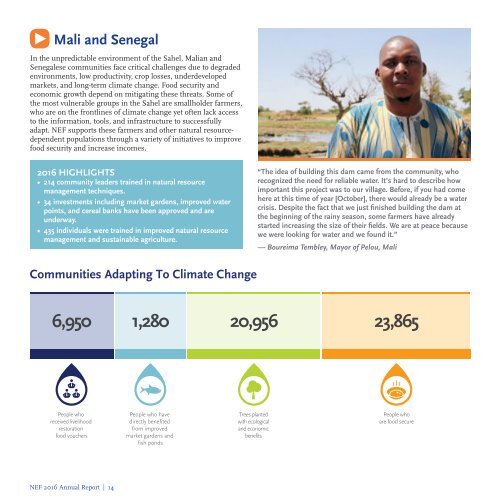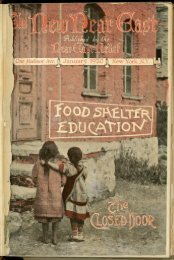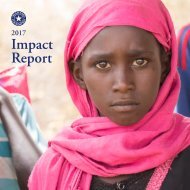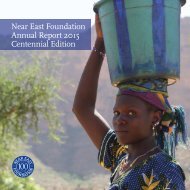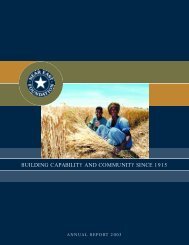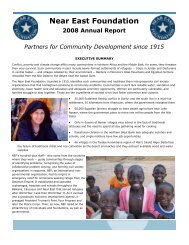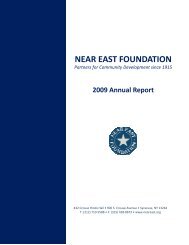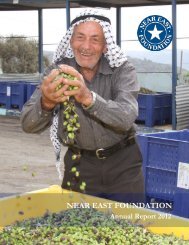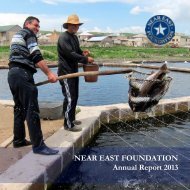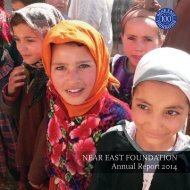2016 Annual report_final for web
You also want an ePaper? Increase the reach of your titles
YUMPU automatically turns print PDFs into web optimized ePapers that Google loves.
Mali and Senegal<br />
In the unpredictable environment of the Sahel, Malian and<br />
Senegalese communities face critical challenges due to degraded<br />
environments, low productivity, crop losses, underdeveloped<br />
markets, and long-term climate change. Food security and<br />
economic growth depend on mitigating these threats. Some of<br />
the most vulnerable groups in the Sahel are smallholder farmers,<br />
who are on the frontlines of climate change yet often lack access<br />
to the in<strong>for</strong>mation, tools, and infrastructure to successfully<br />
adapt. NEF supports these farmers and other natural resourcedependent<br />
populations through a variety of initiatives to improve<br />
food security and increase incomes.<br />
<strong>2016</strong> HIGHLIGHTS<br />
• 214 community leaders trained in natural resource<br />
management techniques.<br />
• 34 investments including market gardens, improved water<br />
points, and cereal banks have been approved and are<br />
underway.<br />
• 435 individuals were trained in improved natural resource<br />
management and sustainable agriculture.<br />
“The idea of building this dam came from the community, who<br />
recognized the need <strong>for</strong> reliable water. It’s hard to describe how<br />
important this project was to our village. Be<strong>for</strong>e, if you had come<br />
here at this time of year [October], there would already be a water<br />
crisis. Despite the fact that we just finished building the dam at<br />
the beginning of the rainy season, some farmers have already<br />
started increasing the size of their fields. We are at peace because<br />
we were looking <strong>for</strong> water and we found it.”<br />
— Boureima Tembley, Mayor of Pelou, Mali<br />
Communities Adapting To Climate Change<br />
6,950<br />
1,280<br />
20,956<br />
23,865<br />
People who<br />
received livelihood<br />
restoration<br />
food vouchers<br />
People who have<br />
directly benefited<br />
from improved<br />
market gardens and<br />
fish ponds<br />
Trees planted<br />
with ecological<br />
and economic<br />
benefits<br />
People who<br />
are food secure<br />
NEF <strong>2016</strong> <strong>Annual</strong> Report | 14


